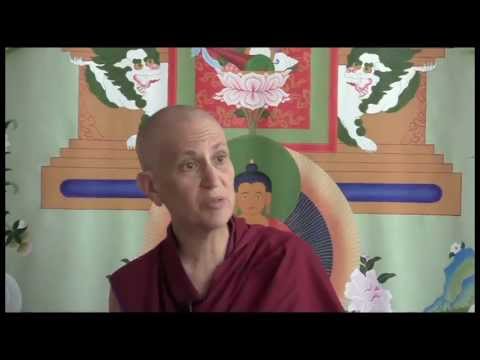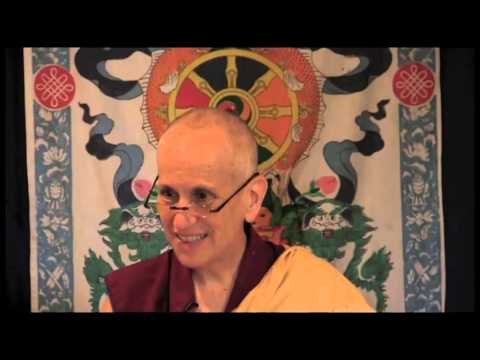Dwelling in the Vibrant Warmth of Bodhicitta
Part of a commentary on Essential Spiritual Advice, a text by the First Dalai Lama outlining the stages of the path to awakening.
So, the next line in our text is:
Dwell in the vibrantly warm thought that encourages spiritual growth in oneself and others.
Guess what they’re talking about: bodhicitta, isn’t it? When it says, “Dwell in the vibrantly warm thought that encourages spiritual growth in oneself and others,” this is the loving, compassionate thought of bodhicitta: the aspiration to become a fully awakened buddha for the benefit of all beings. And that thought encourages ourselves and others to really actualize our full spiritual potential because bodhicitta sees other sentient beings as beings who can become buddhas. In other words, when you have bodhicitta you see the good in other people. You see their potential. You see their buddha nature that can lead them to full buddhahood.
You have faith in other sentient beings, and you realize that all the suffering that they experience, and all the craziness in sentient beings’ minds, is not the nature of their mind; it’s something that can be eliminated. Then whenever you greet any sentient beings, you greet them with an attitude of respect and encouragement and wanting the best for them, which is nice, isn’t it?
How do we usually greet sentient beings? “Oh, god, this idiot again! I asked them to do this, and they did that. Aren’t they ever going to get it straight? Why is the world filled with these people that make me so aggravated?” We go on and on about it. But bodhicitta can tolerate all sentient beings’ inconsistencies and crazinesses. It has a lot of patience, knowing that there’s a way for sentient beings to overcome those inhibiting factors.
So, we dwell in the vibrantly warm thought that encourages spiritual growth in oneself and others. I like that idea of dwelling in the vibrantly strong thought—vibrantly warm thought. But it should be strong, too. And to dwell in it is to saturate our mind in that. This is going to take some practice. It will take a lot of repetition to continually—as much as possible—dwell in that vibrantly warm thought.
This morning I’ve been writing letters to people in prison, and so I especially feel how important it is to encourage other people. I think it’s important not only to point out what isn’t going well, and the wrong way of thinking that they have, which I do quite bluntly, but they also need a lot of encouragement. Taking that effort to encourage them reminds me that I also need to encourage everybody else, too. Bodhicitta has that kind of encouraging feeling to it, but it also has the kind of feeling that says, “Cut that out. It’s time to stop.” It doesn’t put up with the nonsense.
Let’s marinate our mind in that.
Venerable Thubten Chodron
Venerable Chodron emphasizes the practical application of Buddha’s teachings in our daily lives and is especially skilled at explaining them in ways easily understood and practiced by Westerners. She is well known for her warm, humorous, and lucid teachings. She was ordained as a Buddhist nun in 1977 by Kyabje Ling Rinpoche in Dharamsala, India, and in 1986 she received bhikshuni (full) ordination in Taiwan. Read her full bio.


